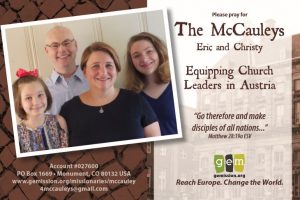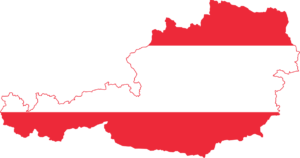What do you think an ideal church leader or church planter looks like? What qualifications (character), skills and attitudes are needed as they train for future ministry? Questions like these have been rolling around my head the past few months. This isn’t just an academic exercise for me. Sure, I have been in discussions like this in seminary or with friends but right now this is different. Let me provide a little background and explain.
Even though the Evangelical Academy has been around for about five years we are continually learning and improving the way things are done. We have had quite a steep learning curve in learning the ropes in higher education. We have something really good that is meeting an immediate and future need but we could be better.
One way we are improving ourselves is by asking a series of questions from a variety of the schools stakeholders like, the school’s faculty, the school’s leadership board, the mentors of the students, Church leaders etc… Each group will discuss the same set of questions that will help gain a 360 view of what needs to be taken into prayerful consideration as we prepare the school’s curriculum.
Here are two of the first questions we are asking:
- What are some of the things that are hindering the spread of the gospel, and nurture of churches in Austria? This question is broken down into 1) external hindrances produced by the culture and context unique to Austria and 2) internal hindrances produced by the evangelical churches and It’s sub-culture.
- What type of person will it take to meet these hindrances? What skills, behaviors and character is needed? What can be developed through training, mentoring and practice?
The answers will be analyzed and synthesized in providing a graduate profile, a detailed description of what a graduate from the Evangelical Academy will be able to know, feel and do.
I have already done this myself identifying a number of unique things that pertain to Austria specifically. I believe this is of little help if one person provides a document like this. Ultimately, the document will be short sighted; having gaps in different areas and robs the leaders and stakeholders of gaining ownership of something they are all heavily invested in. That is why I am excited about starting this process with the schools leadership board toward the end of September.
After completing the graduate profile process, the next project is to look at our current curriculum to see if it addresses the necessary issues Austria is facing. My guess is many of the classes we already have are good but there will need to be some adjustments as to the content and approach for teaching. I also am excited to see if any new classes or emphases are needed.
As you can see I am excited about this and am glad to be a part of this process. Many of the things I am learning in my doctoral classes I am able to put into immediate use. I am indebted to Robert Ferris and Perry Shaw for the time they took in teaching and talking with me this past year.
I will keep you posted on the process. I am sure it will be interesting to see how this plays out in real life. Making plans on paper always seems so simple yet when it leaves the table and enters the real world it takes on a different life.



